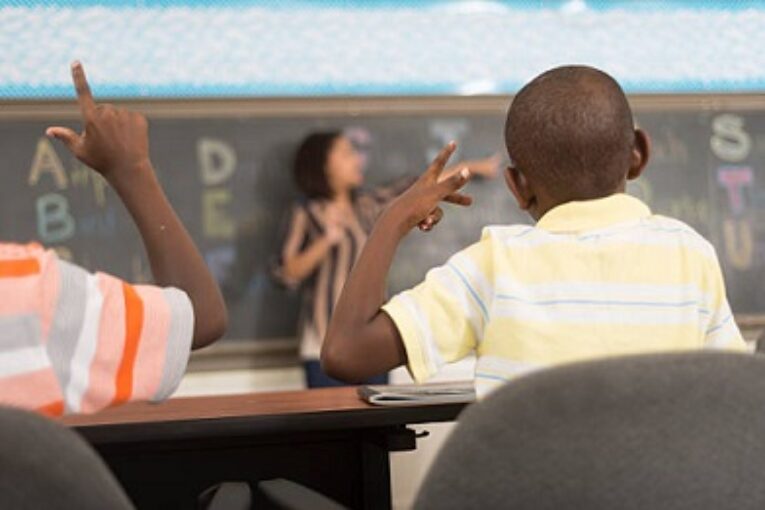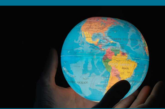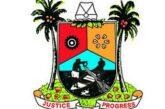
Education is the best legacy, and this holds true for deaf children as well.
Every child, regardless of their parents’ economic standing, deserves a good and quality education, including children with hearing loss. For deaf children in Nigeria, attending school is more than just learning to read and write; it is about communication, building confidence, and not being isolated from society.
Without proper education, many deaf children are at risk of social exclusion, which could trigger natural feelings of loneliness, depression, misunderstanding and deprivation of business and career elevation opportunities.
To gain a balanced understanding of this topic, Pulse sought answers from Olaoluwa Bayonle Emmanuel, a Deaf Educator and Sign Language Interpreter, who is passionate about the Education of the Deaf.
Olaoluwa explained that,
“Education is important for the deaf children because it is a human right and it is an important tool that can help them reach their full potential. Also, it makes them well informed and able to contribute their quota to the development of the country.”
Challenges of Deaf Children’s Education
In Nigeria, deaf children face unique barriers when it comes to education. Some of the key challenges include:
The scarcity of qualified teachers. Many schools lack educators trained in sign language or specialised teaching methods, which fundamentally undermines the primary goal of education: communication.
Furthermore, there is a limited number of special schools for deaf students, with most concentrated in urban areas. This leaves many children in rural regions without access to appropriate educational facilities.
Societal stigma and discrimination also play a role, as some parents conceal their deaf children due to shame, fear of rejection, and cultural or societal beliefs.
Finally, the cost of education presents a considerable barrier. Some families struggle to afford fees for special schools or the necessary educational materials. Additionally, the Sign Language Interpreter added that a “high poverty level further restricts some families from sending their deaf children to school“.
Inclusive schooling in Nigeria
Inclusive schooling involves teaching deaf children alongside hearing children in the same classroom, provided they receive the necessary support and accommodations. Few Nigerian schools are now beginning to adopt this approach, although it remains uncommon.
However, Emmanuel settled on a different view that,
Certain provisions such as adequate sign language interpreters, assistive devices, well trained teachers and conducive learning environment need to be put in place first, to make inclusive schooling effective and really impactful for deaf learners.
He added,
Until we are able to reach a point where all these provisions are made and many deaf learners will just sit in classrooms and not remain excluded from actual learning activities, then inclusive learning can thrive in Nigeria.
Benefits of mainstreaming with support
When deaf children who grow up understanding disability and diversity are taught in mainstream schools, i.e, regular schools with proper support, they experience many positive outcomes.
They feel like they belong with other kids, which helps them get over the feeling of loneliness. This also gives them the confidence to talk and interact with people around them. Importantly, it instils in them the desire and gives them better chances to attend college and secure good jobs in the future.
The Deaf Educator also suggests that,
With sign language interpreters, visual aids, and trained teachers, deaf children gain confidence, social interaction, and exposure to different perspectives. They are also able to develop unrestricted communication skills while building friendships with their hearing peers.
Beyond the benefits for deaf children, this mainstream approach also helps hearing children learn from a young age about disabilities and how everyone is different. This allows them to grow up to be more understanding and accept people for who they are.
Role of special schools and integration models
While inclusion is beneficial, special schools still play a crucial role. These schools provide an environment where teachers are trained in sign language, and the teaching pace is tailored to meet the needs of deaf learners.
Below are some of the special schools for deaf students in Nigeria:
- Wesley School for the Deaf, Surulere, Lagos: This is one of the oldest and most respected schools, featuring trained staff and a sign language-based teaching approach.
- Abuja School for the Deaf: This school serves as a major government-run institution with facilities for both primary and secondary education.
- School for the Deaf: This institution offers early intervention support to children, helping them integrate into society.
- School for the Deaf:This school is well-known in the South-West for providing specialised deaf education.
Credit: Pulseng




